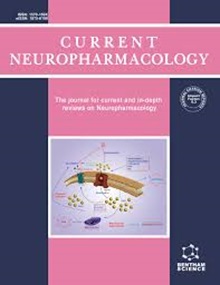淋巴系统与精神疾病:快速综合范围审查
IF 4.8
2区 医学
Q1 NEUROSCIENCES
引用次数: 0
摘要
背景:自从发现甘液系统以来,人们对探索它与精神疾病的关系产生了越来越浓厚的兴趣。最近,越来越多的证据表明,甘回流系统参与了精神疾病的病理生理学研究。然而,目前仍缺乏明确的数据。在这种情况下,本快速全面的 PRISMA-ScR(系统综述和元分析首选报告项目扩展范围综述)范围综述旨在识别和分析有关甘回流系统与精神疾病之间关系的现有证据。方法:我们对文献进行了全面综述,然后对综述结果进行了叙述性讨论。然后制作表格,并根据作者、年份、标题、研究地点、样本量、精神疾病、研究目的、主要发现和影响对文章进行分类。结果:确定了 20 篇符合条件的论文,其中 2 篇关于精神分裂症,1 篇关于自闭症谱系障碍,2 篇关于抑郁症,1 篇关于抑郁症和创伤相关障碍,1 篇关于抑郁症和焦虑症,2 篇关于焦虑症和睡眠障碍,8 篇关于睡眠障碍,2 篇关于酒精使用障碍,1 篇关于可卡因使用障碍。结论本综述表明,甘油系统与多种精神疾病之间存在相关性:精神分裂症、抑郁症、焦虑症、睡眠障碍、酒精使用障碍、可卡因使用障碍、创伤相关障碍和自闭症谱系障碍。甘液系统受损可能在创伤相关障碍、酒精使用障碍、可卡因使用障碍、睡眠障碍、抑郁症和自闭症谱系障碍中发挥作用。对这一主题进行研究并采用标准化标记和无线电诊断工具非常重要。本文章由计算机程序翻译,如有差异,请以英文原文为准。
Glymphatic System and Psychiatric Disorders: A Rapid Comprehensive Scoping Review
Background: Since discovering the glymphatic system, there has been a looming interest in exploring its relationship with psychiatric disorders. Recently, increasing evidence suggests an involvement of the glymphatic system in the pathophysiology of psychiatric disorders. However, clear data are still lacking. In this context, this rapid comprehensive PRISMA-ScR (Preferred Reporting Items for Systematic Reviews and Meta-Analyses extension for Scoping Reviews) scoping review aims to identify and analyze current evidence about the relation between the glymphatic system and psychiatric disorders. Methods: We conducted a comprehensive review of the literature and then proceeded to discuss the findings narratively. Tables were then constructed and articles were sorted according to authors, year, title, location of study, sample size, psychiatric disorder, the aim of the study, principal findings, implications. Results: Twenty papers were identified as eligible, among which 2 articles on Schizophrenia, 1 on Autism Spectrum Disorders, 2 on Depression, 1 on Depression and Trauma-related Disorders, 1 on Depression and Anxiety, 2 on Anxiety and Sleep Disorders, 8 on Sleep Disorders, 2 on Alcohol use disorder and 1 on Cocaine Use Disorder. Conclusion: This review suggests a correlation between the glymphatic system and several psychiatric disorders: Schizophrenia, Depression, Anxiety Disorders, Sleep Disorders, Alcohol Use Disorder, Cocaine Use Disorder, Trauma-Related Disorders, and Autism Spectrum Disorders. Impairment of the glymphatic system could play a role in Trauma-Related Disorders, Alcohol Use Disorders, Cocaine Use Disorders, Sleep Disorders, Depression, and Autism Spectrum Disorders. It is important to implement research on this topic and adopt standardized markers and radio diagnostic tools.
求助全文
通过发布文献求助,成功后即可免费获取论文全文。
去求助
来源期刊

Current Neuropharmacology
医学-神经科学
CiteScore
8.70
自引率
1.90%
发文量
369
审稿时长
>12 weeks
期刊介绍:
Current Neuropharmacology aims to provide current, comprehensive/mini reviews and guest edited issues of all areas of neuropharmacology and related matters of neuroscience. The reviews cover the fields of molecular, cellular, and systems/behavioural aspects of neuropharmacology and neuroscience.
The journal serves as a comprehensive, multidisciplinary expert forum for neuropharmacologists and neuroscientists.
 求助内容:
求助内容: 应助结果提醒方式:
应助结果提醒方式:


